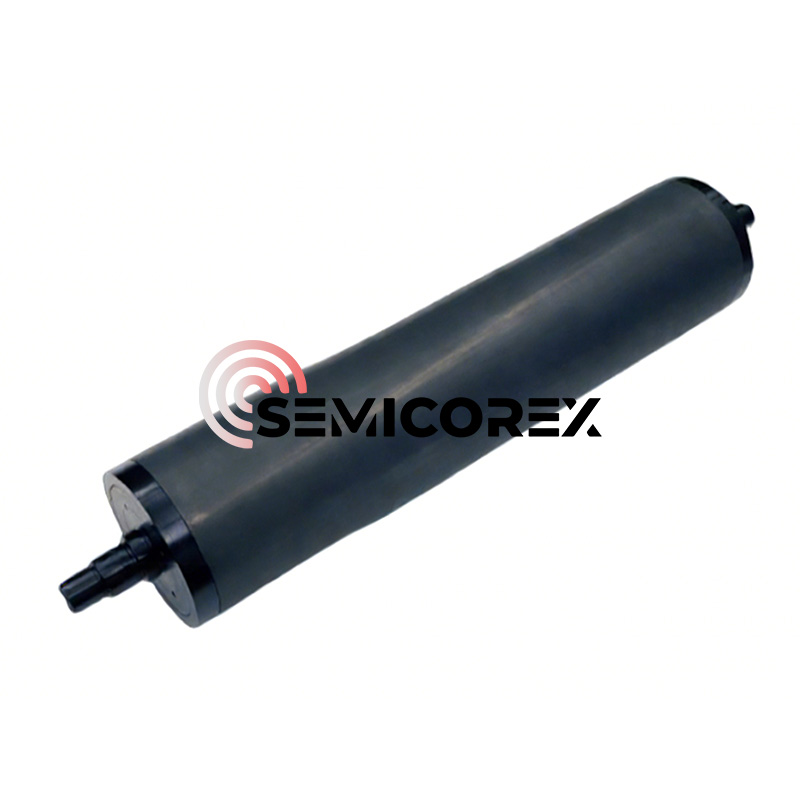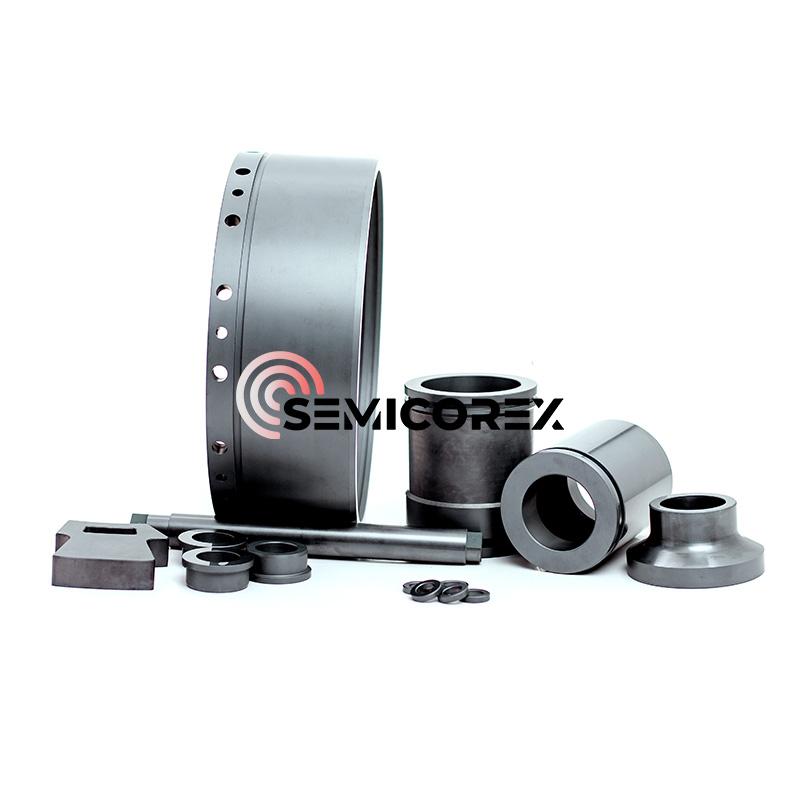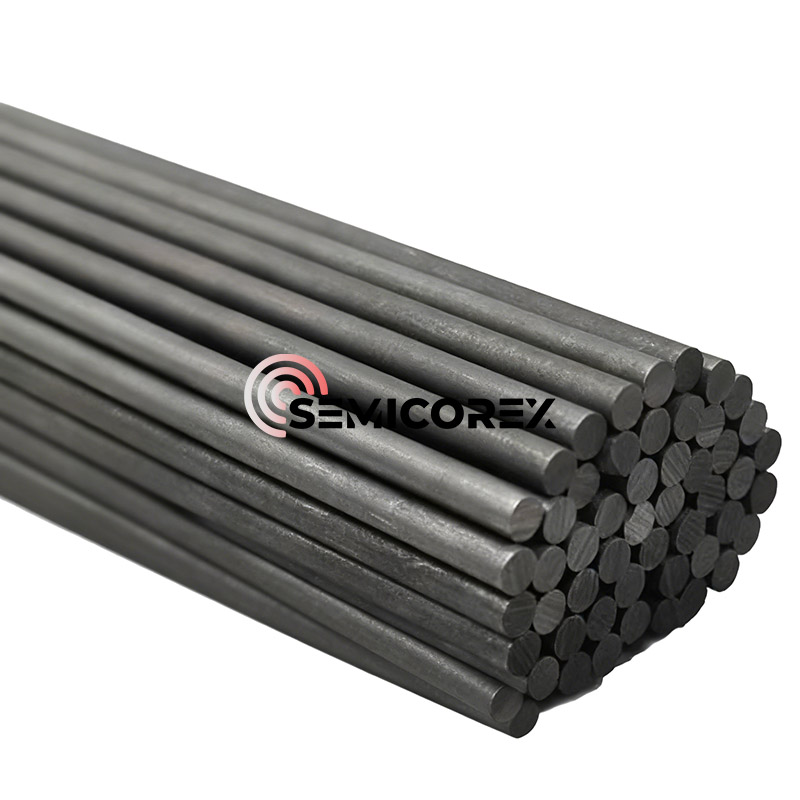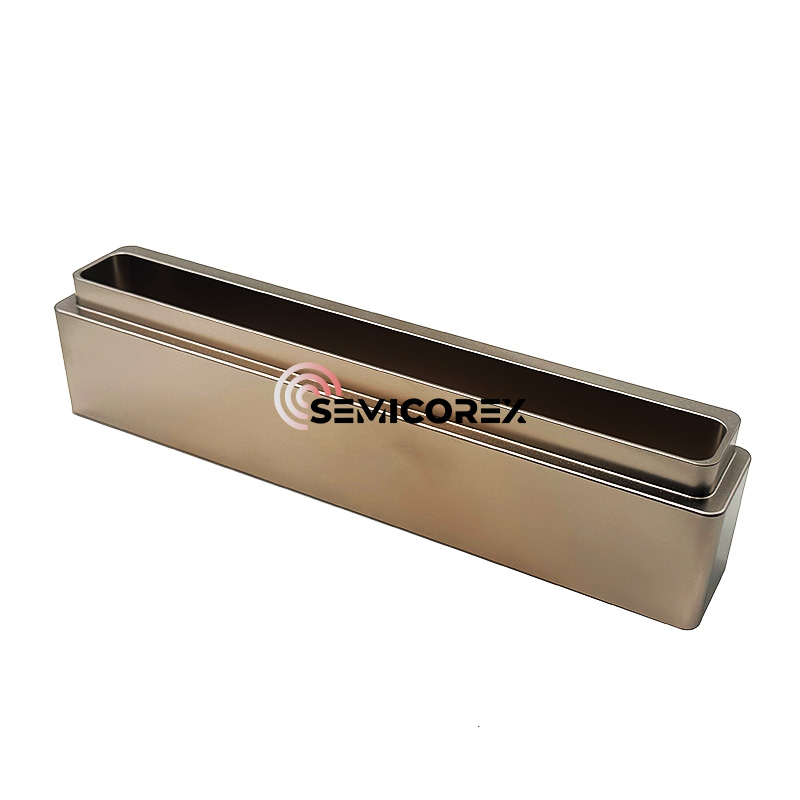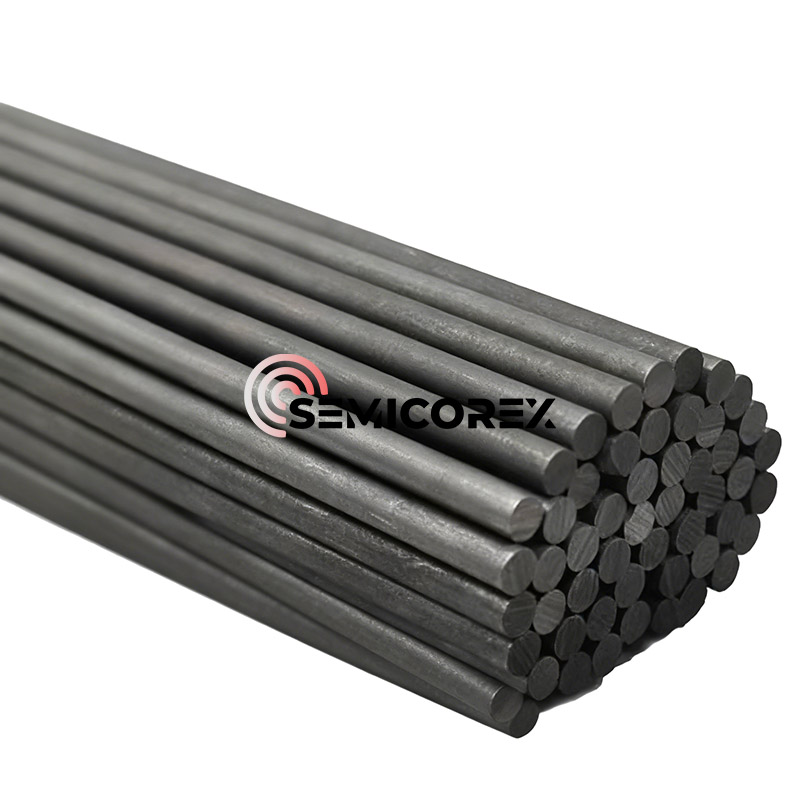
- English
- Español
- Português
- русский
- Français
- 日本語
- Deutsch
- tiếng Việt
- Italiano
- Nederlands
- ภาษาไทย
- Polski
- 한국어
- Svenska
- magyar
- Malay
- বাংলা ভাষার
- Dansk
- Suomi
- हिन्दी
- Pilipino
- Türkçe
- Gaeilge
- العربية
- Indonesia
- Norsk
- تمل
- český
- ελληνικά
- український
- Javanese
- فارسی
- தமிழ்
- తెలుగు
- नेपाली
- Burmese
- български
- ລາວ
- Latine
- Қазақша
- Euskal
- Azərbaycan
- Slovenský jazyk
- Македонски
- Lietuvos
- Eesti Keel
- Română
- Slovenski
- मराठी
- Srpski језик
Impregnated Graphite Rods
Semicorex Impregnated Graphite Rods are precious machined, they are made of high quality impregnated graphite, widely used in the mechanical industry. Semicorex is a top-notch company in China that delivers high-quality graphite products.*
Send Inquiry
Semicorex Impregnated Graphite Rods are high-performance carbon-graphite components, which is engineered for superior durability, chemical resistance, and thermal stability across demanding industrial and laboratory environments. Each rod is produced from high-purity, fine-grain graphite and undergoes an impregnation process where the resins, metals or inorganic agents are introduced into the micro-porous structure of the graphite using a vacuum and pressure controlled method.
The treatment improves upon the mechanical properties of the graphite by significantly increasing the density as well as decreasing porosity, thus enhancing the mechanical properties of the graphite to levels that are significantly greater than conventional graphite. The composite material c
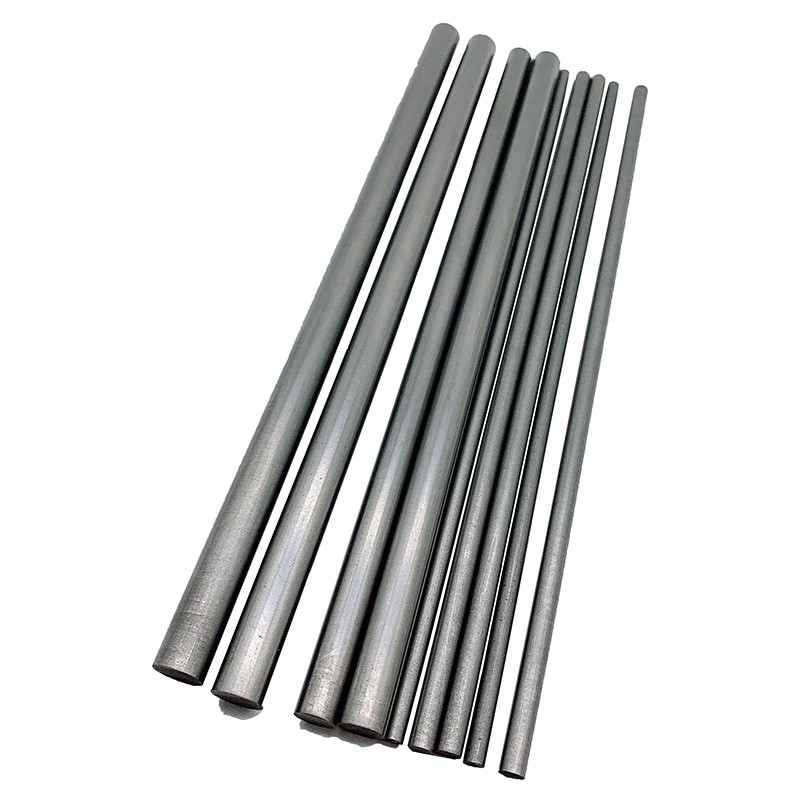
reated retains all of the benefits of graphite; great thermal conductivity, low thermal expansion, and excellent machining capabilities while adding additional benefits of increased sealing performance, as well as increased resistance to chemical and mechanical degradation. Impregnated graphite prevents fluids or corrosive materials from penetrating into the centre of the rod and, therefore, can be used in applications which have continuous exposure to acids, alkalis, solvents, extremely high temperature gases, as well as other aggressive environments that would quickly degrade untreated carbon materials.
In terms of thermal stability, these Impregnated Graphite Rods are highly resistant to extreme heating and cooling cycles, underlying their reliable performance in high-temperature furnace operations, thermal reactor environments, and in various heat processing operations. Impregnation of the graphite also improves the oxidation-resistant properties of the impregnated graphite as well as aiding in maintaining a more uniform dimensional profile, which is particularly important for applications that require consistent operational performance for long durations.
Due to the high machinability of graphite and the added strength obtained through impregnation, Impregnated Graphite Rods made from these materials can be manufactured with a high degree of accuracy and very tight tolerance levels. Various shapes, sizes, densities, and types of plasticizing materials allow rods to be tailored for specific applications or to accommodate complex equipment. Customization options for each rod can include phenolic resin for improved sealing properties, metallic copper for enhanced conductivity, antimony to provide greater resistance to wear, and specialty inorganics to provide maximum chemical durability. The ability to customize the rods provides the end user with the optimum performance of each rod in its intended application. With the flexibility to incorporate the rods into applications such as pumps, mechanical seals, bearings, slides, plungers, fixtures used in the operation of furnaces, semiconductor processing equipment, electrodes, and a variety of laboratory instruments, customers can expect products that combine thermal conductivity with corrosion resistance and structural reliability, which allow many of these rods to outperform numerous metals, ceramics, and untreated carbon materials in applications that require both thermal transfer and chemical stability.
From chemical processing plants to metallurgical operations, from semiconductor manufacturing lines to precision research laboratories, impregnated graphite rods offer the lowest cost across various industries globally, while providing exceptional reliability and maintainability. Thanks to their low porosity and composite structure, these graphite rods experience minimal wear, provide effective sealing, and maintain high efficiency even during prolonged use and exposure to cyclical thermal and mechanical forces. These graphite rods also feature a lightweight structure, high-temperature resistance, and excellent corrosion and reactive properties. Therefore, they are ideal for engineers and researchers who require strength and long-term stability under harsh operating conditions.

